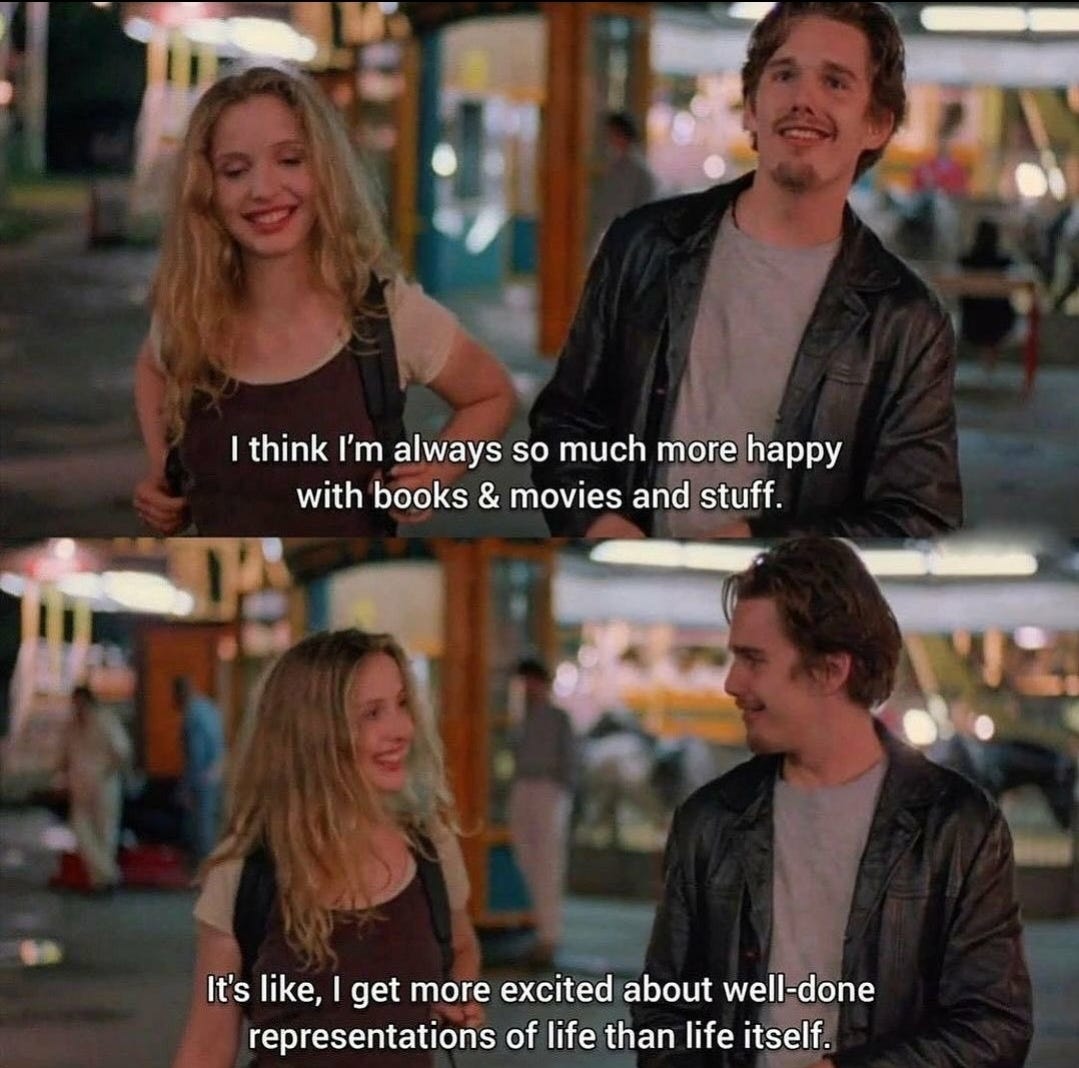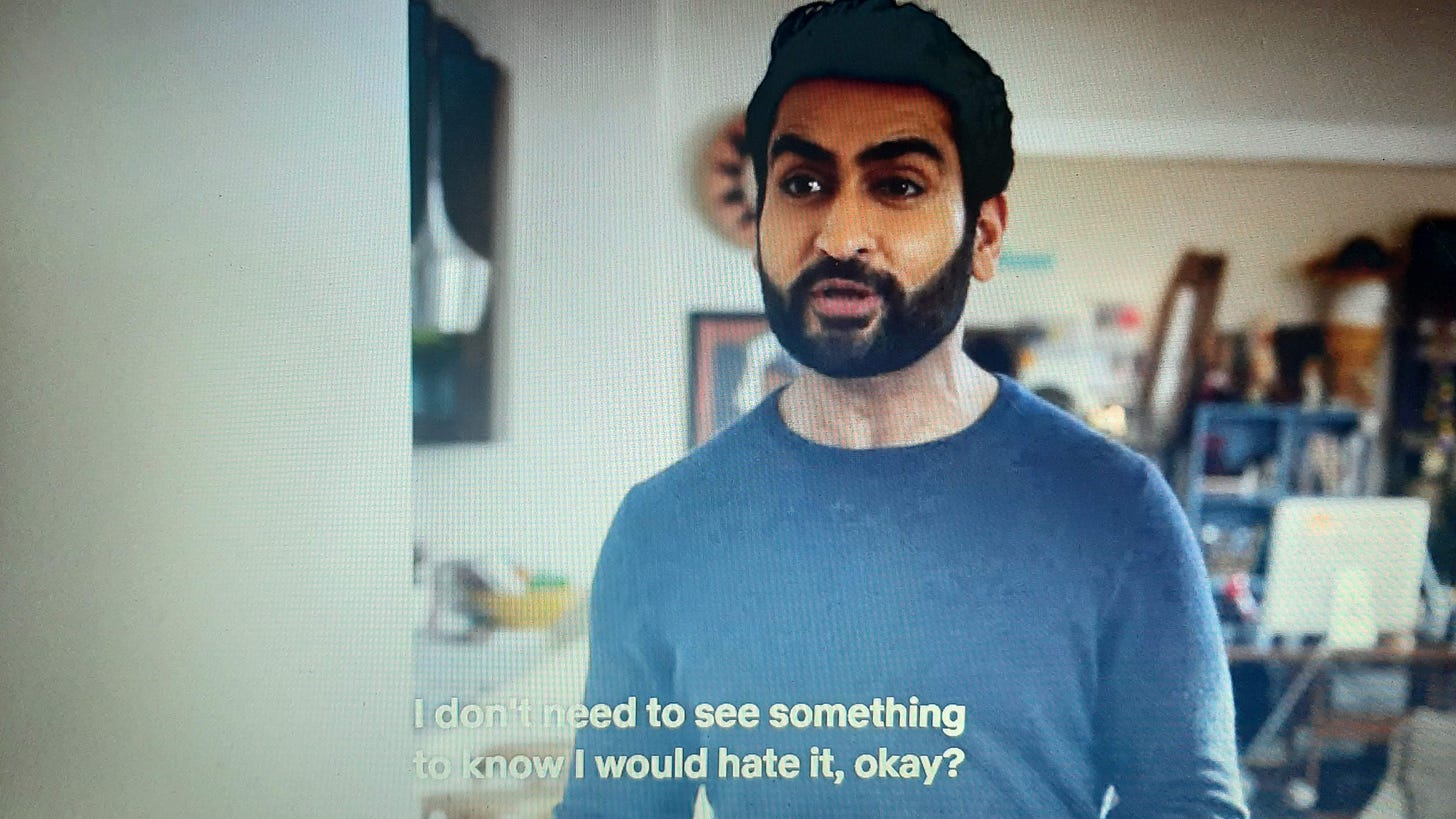disenchanted selves + saving graces: August 2024 Essay Recommendations
From adult fairy-stories to the crisis of meaning and the digital devotional life to personal religious freedom, here are this month's recommended longforms...
I’m on holiday, fellow secret keepers, but I’m still thinking about you. Consider this delivery an act of love and a sign of things to come.
enchanted world, disenchanted selves
Putting the important stuff right up front because
posits a different way of thinking about the critical problem of our age: disenchantment. We speak of the world as disenchanted but, he argues, the fault really lies with us. We’re not paying attention.Enchantment is just the measure of the quality of our attention.
In other words, what if we experience the world as disenchanted because, in part, enchantment is an effect of a certain kind of attention we bring to bear on the world and we are now generally habituated against this requisite quality of attention?
[We must] “hone sensory receptivity to the marvelous specificity of things.” …In so doing we may find ‘the mundane, observed, becomes the romantic’ — or, the enchanted.
Read more at
: If Your World Is Not Enchanted, You’re Not Paying Attention.While you’re paying attention to that, pay attention to this episode of the Manifesto podcast, Hobbits, Goblins and the Very Adult World of Fairy-Stories. The discussion with
covers Tolkien’s essay, “On Fairy-Stories,” and Christina Rossetti’s arguably weird poem, “Goblin Market.” Given my proclivities, my ears piqued when the discussion came around to three ideas I can’t wait to consider further:in a fairy story, “not everything has to be consummated”
the “opposite of fantasy is not reality, the opposite of fantasy is pornography” (e.g., lack of subtlety + mystery)
“the fairy tale is opposed to both tragedy and pornography”
Also pay attention to Matt Johnson’s discussion of Liberalism and the West’s ‘Crisis of Meaning’. Part and parcel of the enchanted world is the sense that our lives within it have meaning. The idea of meaning is usually tied to religiousish contexts, but such contexts are seemingly eroding in the West and liberalism has been proposed as replacement. Except that liberalism, Matt Johnson admits, ‘can’t provide a sense of meaning and purpose—that’s up to us...’ But making our own meaning, I say, is a bit of an oxymoron. (More on that later, maybe.)
saving pictures, saving grace
“Never trust an image—or a savior—without wounds,” Matthew J. Milliner says in his essay, Personal Devotions in an Image-Loving Age. He’s writing about the digification of the religious devotional life—praying with celebrities via apps, watching that hit Jesus streaming series, touring ancient cathedrals online, and sharing AI iconography on social media. Is all this web-based activity replacing (confusing and short-changing) sincere devotional life? Milliner has insights from Michaelangelo to help combat this.
Speaking of an image-loving age,
has an excellent and urgent post: Don’t Let The Vacation Post Ruin Your Vacation. It’s all about the folly of living for the presentation of the self via the medium of the internet.In the same vein, I have a new essay out in Plough. Enjoy the Moment discusses how our propensity for recording so many of our experiences in order to share them online manipulates how we see the world and reduces our ability to remember. Can we escape the strange magic of capture culture and replace it with something healthier?
no therapy needed
Has therapy become a social crutch? Generally, I think yes, and
seems to agree.We are not cultivating the virtues necessary to be resilient in the modern world, so some people unnecessarily rely on professional services of various kinds to cope with their everyday sufferings.
Along similar lines,
’s piece on “reclaiming intuition and emotions as a Christian source of wisdom” is also valid and correct. Because What If You Can Trust Your Heart?nature of belief
The Olympic opening ceremony controversy was one of those moments where instead of asking what? we should have been asking why? The what is the (alleged) offense, but why is the most important question. Why do people react to things the way they do? What can that tell us about who we are and who we should be?
In An Olympic Celebration of Offense and Insecurity, Chase Replogle interrogates the offense-taking habit of Christian audiences, aligning it with underlying insecurity. He asks whether being offended is the most Christlike response.
Those who protest most loudly are often the most insecure and desperate to find what they proclaim to have. Our ability to overcome insecurity and its symptoms of offense is a powerful witness to this world.
What I saw Friday night was a culture hopelessly lost and intoxicated with hedonistic desperation, desperate to find something meaningful. To me, it looked like insecurity. We can recognize it because we feel it too…
In relation to specific questions of faith, I also read
’ piece When Belief is Agony. It’s about overcoming religious scrupulosity (despite its positives!) to live in religious freedom.To be truly free is to be able to rule oneself through reason, and also to freely and joyfully love the loveable. To be truly free is to be free to actually be present to others, rather than to be so busy with your own mental suffering that you have no emotional or intellectual space for them. To be truly free is to stand un-accused, to know oneself at peace with Christ.
Also in relation to religion… Despite contending (effectively) that all religions are made equal (they’re not!),
points out that many of the new religions-sans-god (climate alarmism, aggressive social justice awareness, ideological purity campaigns, etc.) strip away the aspects of “aspiration, grace, and forgiveness” that make theistic religion special. These new pseudoreligions are “oddly anti-humanist [and] anti-progress… They aren’t uplifting; they are demoralizing. They rarely add positive energy to the world.” Read more in Religion as a Psychology.Okay, let’s wrap this up.
Holly Lawford-Smith takes on Olympic women’s gymnastic uniforms to make a point about norms and how rules can’t/don’t always make changes for a better/fairer world.
Not to raise the question of who gets to claim the label evangelical or anything, but James R. Wood contends evangelicals should cease favoring “the left” in evangelistic outreach because it “undermines outreach to those who are more open to the gospel.” An interesting take.









Great reading list. Now my browser tabs are overloaded 🤣
I just read the O. Alan Noble piece on therapy- wow, he really hits the nail on the head there. Looking forward to reading the piece you linked from the Convivial Society.